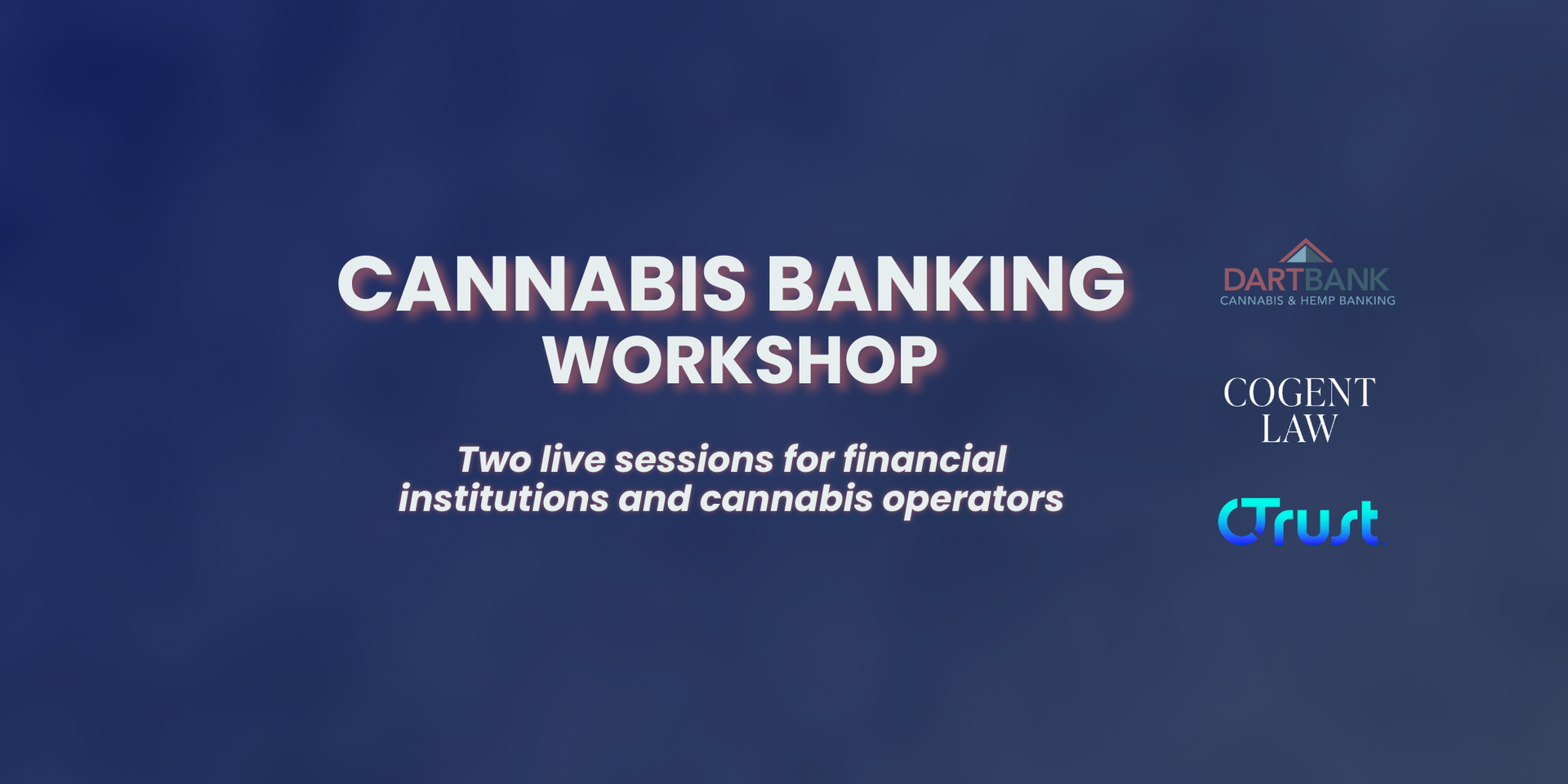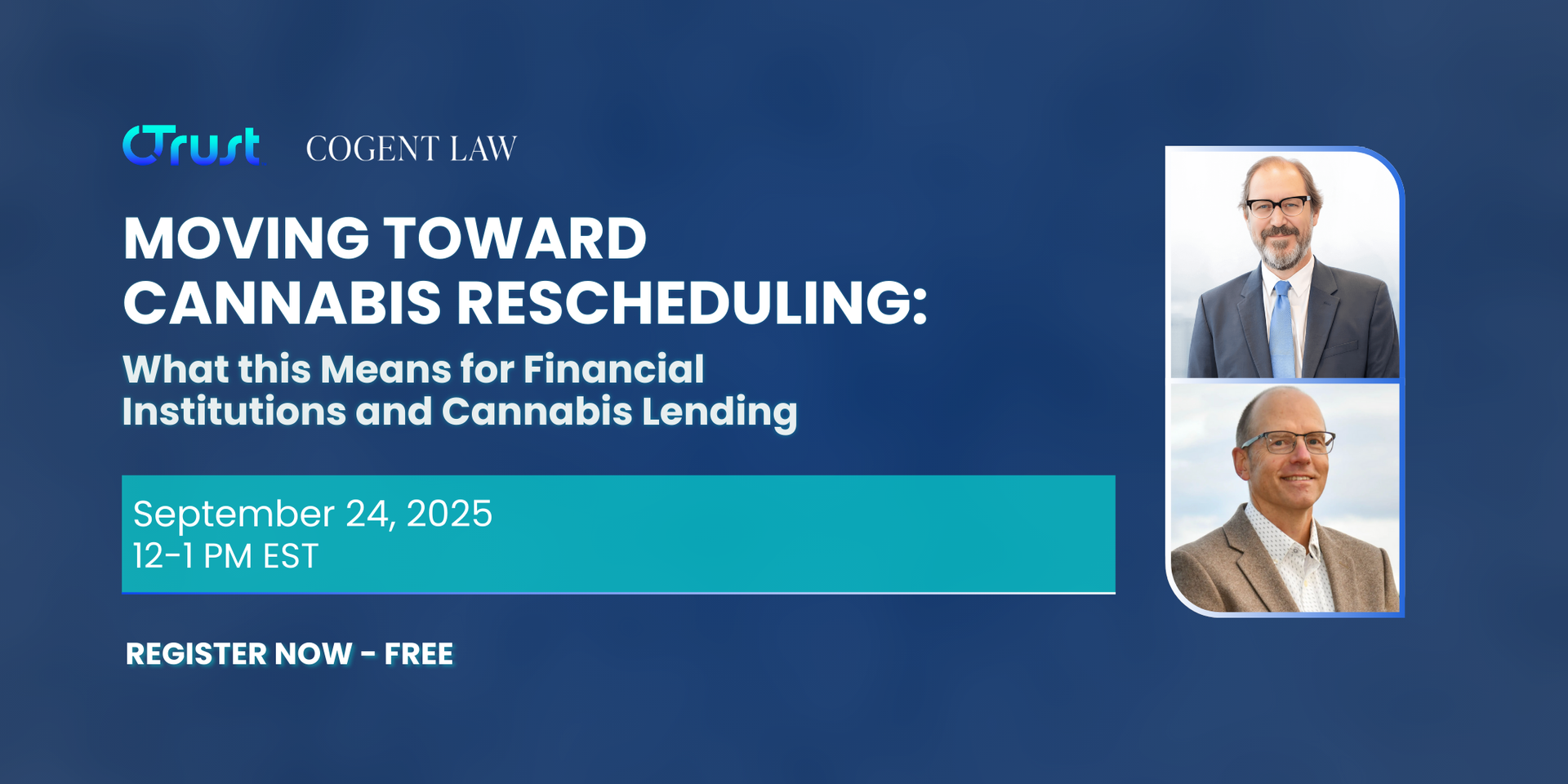Bridging The Cannabis Banking Divide: CRB And FI Perspectives

Event Description
This timely webinar brings together cannabis industry and financial services experts for a candid, dual-perspective conversation on cannabis banking in 2025. Hear directly from a cannabis regulatory attorney and banking attorney about what’s changing, what’s working, and where opportunities lie.
Attendees will gain insight on:
- Roadblocks holding back financial institutions from banking cannabis
- Frustrations CRBs face when accessing and maintaining financial services
- Key requirements CRBs must meet to work with financial institutions
- What CRBs can expect after opening an account
- National regulatory trends and pending legislation
- Why CRBs are increasingly attractive financial institution customers
Topics Covered
- Compliance and risk considerations for both sides
- Best practices for building CRB–FI relationships
- CRB expectations vs. FI considerations
- Legal and regulatory developments on the horizon
Meet the Speakers
Adrienne Dean
Partner, Cogent Law Group
Adrienne Dean is a Partner at Cogent Law Group in its Cannabis Law Practice Group. Adrienne advises prospective and operating licensed cannabis businesses on state and local regulatory requirements as well as corporate law, securities and fundraising matters. A passionate advocate of social equity, Adrienne fights relentlessly for state legislation that promotes the interests of smaller, locally-owned businesses.
Chris Van Dyck
Partner, Cogent Law Group
As a Partner at Cogent Law Group, Chris Van Dyck brings nearly a decade of hands-on experience in cannabis banking, both as a financial regulatory attorney and as a general counsel and BSA officer at a financial institution. With a deep understanding of compliance and regulatory expectations, including the 2014 FinCEN guidance, Chris has helped build and scale a successful cannabis banking program that became a major revenue driver. Today, he advises financial institutions on launching and managing compliant cannabis banking programs, mitigating risk, and driving growth in this high-opportunity sector.
Bonus
Is your Financial Institution offering, or considering offering, financial services to cannabis-related businesses (CRB’s)?
Below is a checklist developed by Chris to assist your Financial Institution so that it appropriately manages the risks, and meets the regulatory expectations, of having a CRB program. Click Here to download the checklist.
You Might Also Like:



